News
Being a Channel of Truth and Holiness (Part II)

“Again Jesus called the crowd to Him and said, ‘Listen to me, everyone, and understand this. Nothing outside a man can make him “unclean” by going into him. Rather, it is what comes out of a man that makes him “unclean.”’” – Mark 7:14-16 (NIV)
Introduction
The word “channel” signifies action — to direct, lead, or train — and as a noun, it refers to a conduit or means of access. More profoundly, it also describes roles such as advertiser, delegate, witness, communicator, and spokesperson.
As Christians, Acts 1:8 reminds us that we are the channels through whom others come to know Christ — His representatives and messengers on earth. We are called to communicate the message of salvation through Jesus Christ, even though the world often amplifies political voices above the life-giving truth that only Jesus saves.
Holiness
In our last section on holiness, we said that in 1 Peter 1:3-16, Peter writes to believers on what the Bible says about holiness: “Therefore, prepare your minds for action; be self-controlled; set your hope fully on the grace to be given you when Jesus Christ is revealed. As obedient children, do not conform to the evil desires you had when you lived in ignorance. But just as He who called you is holy, so be holy in all you do; for it is written: ‘Be holy, because I am holy.’”
Peter is quoting from Leviticus 11:44 and Leviticus 19:2.
First, let us look at God’s holiness. What does it mean that God is holy? Passages like 1 Samuel 2:2 and Isaiah 6:3 are just two of many examples of passages about God’s holiness. Another way to say it is that holiness is absolute perfection. God is unlike any other, and His holiness is the essence of that “otherness.” His very being is completely absent of even a trace of sin (James 1:13; Hebrews 6:18). He is high above any other, and no one can compare to Him (Psalm 40:5).
God’s holiness pervades His entire being and shapes all His attributes. His love is a holy love, His mercy is holy mercy, and even His anger and wrath are holy anger and holy wrath. These concepts are difficult for humans to grasp, just as God is difficult for us to understand in His entirety.
We now continue with part two of the article. Please enjoy and pass it on!
The Bible and Holiness
Next, what does it mean for us to be holy? When God told Israel to be holy in Leviticus 11:44 and 19:2, He was instructing them to be distinct from the other nations by giving them specific regulations to govern their lives. Israel is God’s chosen nation, and God has set them apart from all other people groups. They are His special people, and consequently, they were given standards that God wanted them to live by so the world would know they belonged to Him.
When Peter repeats the Lord’s words in 1 Peter 1:16, he is talking specifically to believers. As believers, we need to be “set apart” from the world unto the Lord. We need to be living by God’s standards, not the world’s. God is not calling us to be perfect, but to be distinct from the world.
1 Peter 2:9 describes believers as “a holy nation.” It is a fact! We are separated from the world; we need to live out that reality in our day-to-day lives, which Peter tells us how to do in 1 Peter 1:13-16.
Rev. Dr Joyce Aryee, the author
News
GNAD courts media to promote importance of sign language
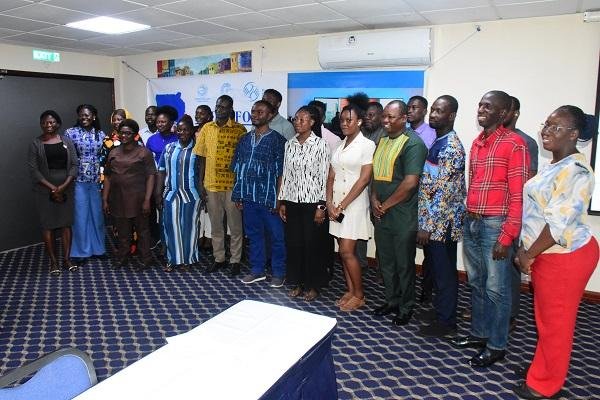
THE Executive Director of the Ghana National Association of the Deaf (GNAD), Mr Juventus Dourinaah, has called on the media to take a lead role in promoting inclusivity and accessibility for the deaf and hard-of-hearing persons in Ghana.
He made the call at a media forum last week on the theme “No Human Rights Without Sign Language Rights.” It brought together journalists, development partners, and members of the Deaf community.
The event formed part of efforts to highlight the importance of sign language as a human right and to encourage media institutions to adopt inclusive communication practices.
Mr Dourinaah emphasised that the media was one of the most powerful tools for shaping public perception, influencing policies, and setting national agendas.
“The media holds strong power to influence understanding and build inclusion.”
For deaf persons, he said, access to information through sign language, captioning, and visual communication is not a privilege but rather a human right.
He added that without accessible communication, deaf people remain excluded from national conversations, education, and opportunities that shape their lives.
He therefore urged both public and private broadcasters to integrate sign language interpretation into all news programmes, public service announcements, and major national events.
Mr Dourinaah also appealed to the National Communications Authority (NCA) and the Ministry of Communications (MoC) to make accessibility a mandatory requirement for all media houses.
At the end of the meeting, media representatives in a communique pledged to promote accessibility by including Ghanaian Sign Language interpretation and subtitles in programming.
They also pledged to ensure fair and non-discriminatory representation of deaf persons while collaborating with GNAD to train media personnel on inclusive communication.
Join our WhatsApp Channel now!
https://whatsapp.com/channel/0029VbBElzjInlqHhl1aTU27

News
29th GJA Media Awards to be held in Kumasi
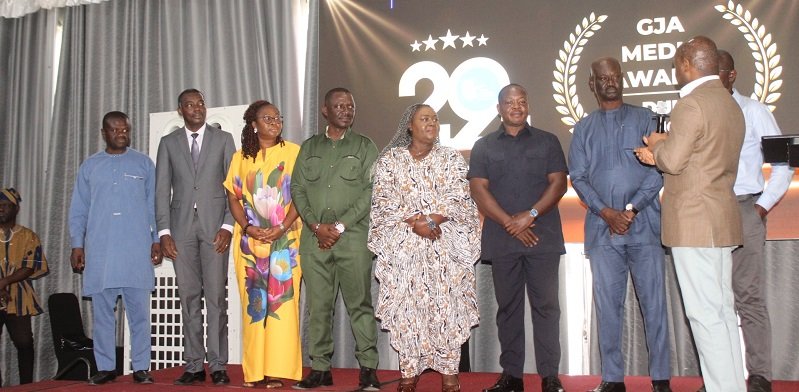
The Ghana Journalists Association (GJA) would host its flagship awards in Kumasi for the first time, with the 29th edition set for November 8 at the Manhyia Palace, under the patronage of the Asantehene, Otumfuo Osei Tutu II.
The event will celebrate excellence in journalism and recognise media professionals and institutions that have demonstrated integrity, innovation, and commitment to the highest standards of the profession.
Launching the Awards in Accra on Thursday, the GJA President, Mr Albert Kwabena Dwumfour, explained that the decision to host the awards in Kumasi was a symbolic gesture of inclusivity, reflecting the Association’s commitment to recognise contributions from all regions of the country.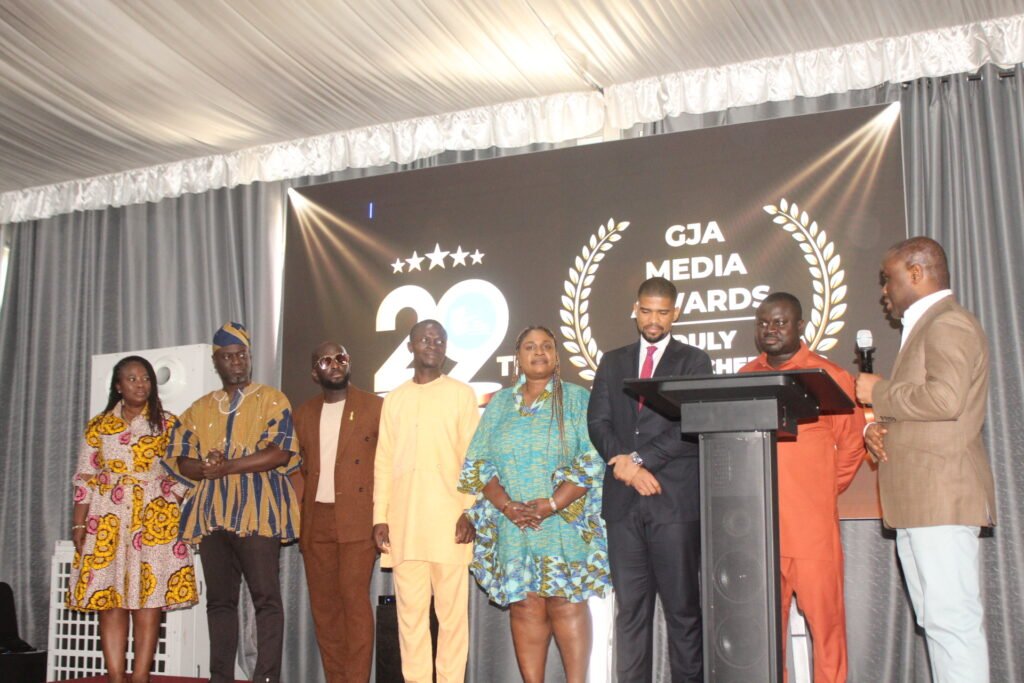
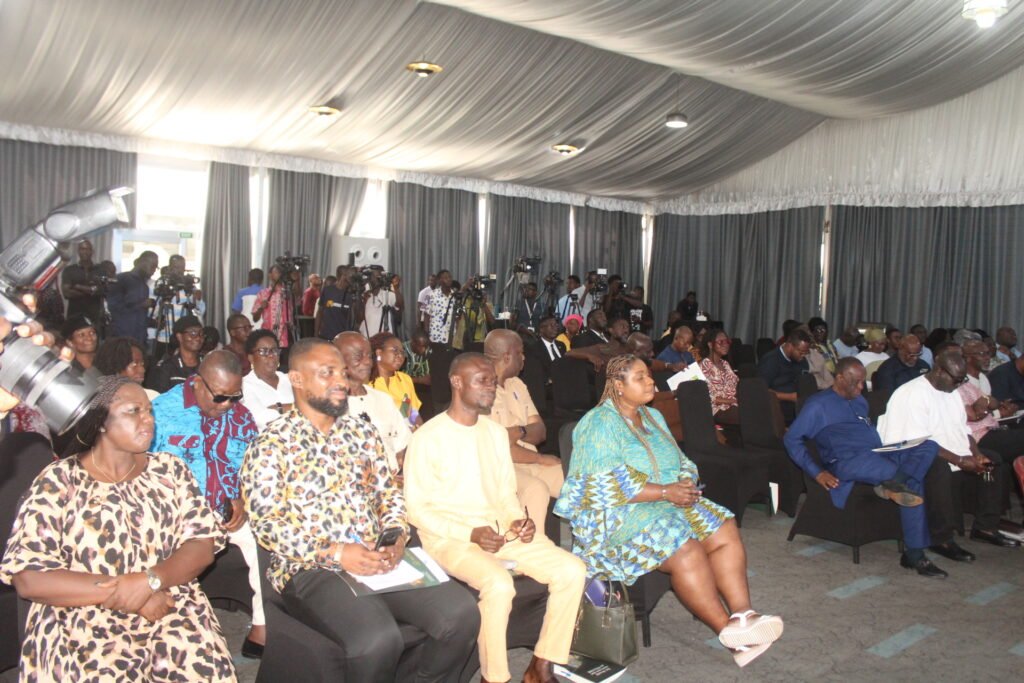
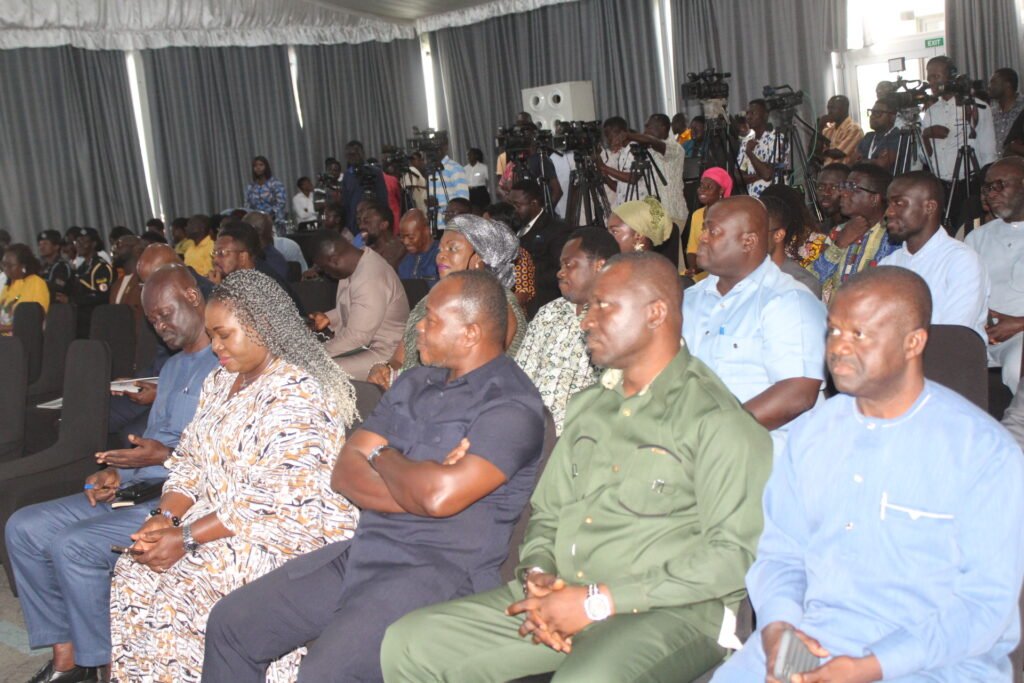
This year’s edition would be held under the theme, “Safeguarding Ghana’s Future: The Role of the Media in Promoting Peace, Security and the Fight Against Galamsey.”
At the launch, two committees — Awards and Planning Committees — were inaugurated.
The nine-member Awards Committee, chaired by Mr Gabriel Bosompem, former Commissioner of the National Media Commission and former Production Manager at TV3 (Media General), is responsible for vetting of entries.
Other members of the committee include Alhaji Salifu Abdul-Rahman, Editor of the Ghanaian Times; Mr Kingsley Obeng-Kyere, P.A.V. Ansah, Ms Nana Yaa Konadu, and Ms Theresa Owusu-Ako.
The rest are Madam Agnes Boye-Doe, Mr David Andoh, Mr Samuel Bio and Mr Jeorge Wilson Kingston.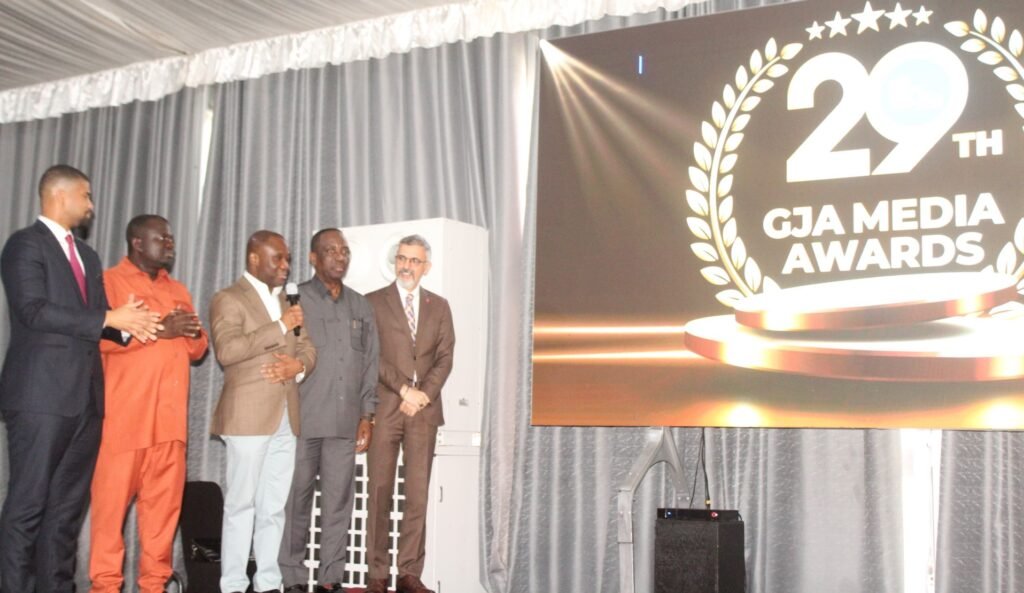
The Planning Committee is co-chaired by Mr Dwumfour and Mr Prince Oheneba Nana Kwaku Duah, and includes Mr Dominic Hlordzi, Mr Emmanuel Safo, Deputy Head of Protocol at the Manhyia Palace; and Mr Kwame Adinkra.
Others are Mr Kojo Soboh, Mr Nathaniel Attoh of Joy News; Ms Rebecca Ekpe, Vice President of the GJA; and former National Treasurer, Mrs Audrey Francesca Dekalu.
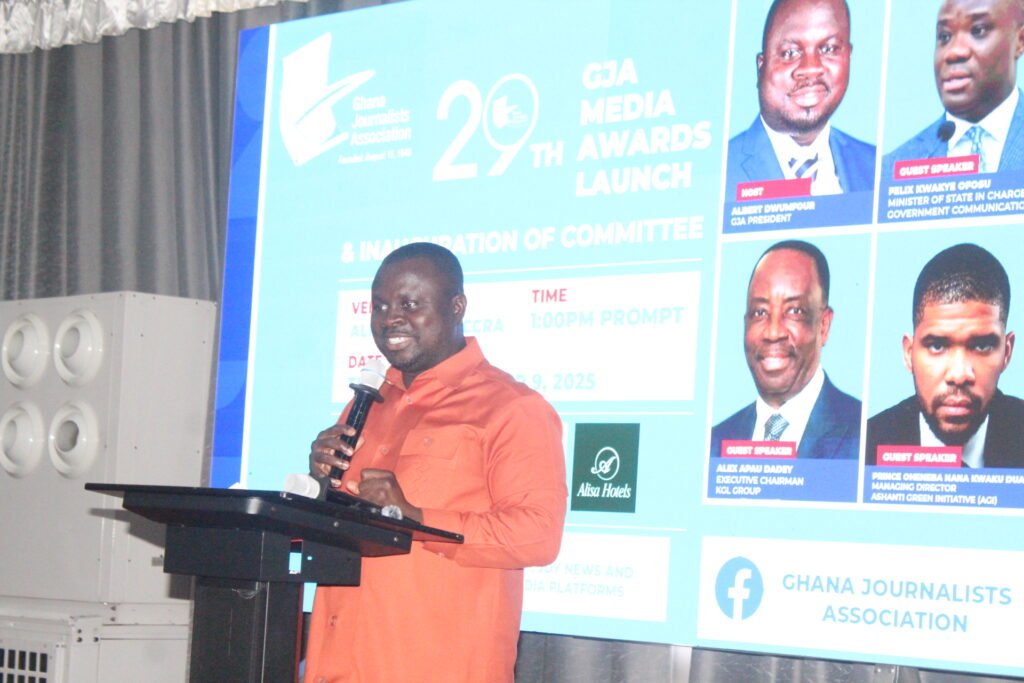
Mr Dwumfour assured that accommodation and transportation would be fully provided for more than 500 journalists to travel to Kumasi for the awards to ensure full participation.
The event will commence with a welcome reception at the Lancaster Hotel on Friday, November 7, followed by a health walk on the morning of Saturday and climax it with the awards ceremony at 4pm at the Manhyia Palace.
The Minister of State in charge of Government Communications, Mr Felix Kwakye Ofosu, in his address, commended the GJA for sustaining the awards for over nearly three decades.
He urged journalists to embrace innovation and adapt to new technologies such as Artificial Intelligence.
He reaffirmed government’s commitment to press freedom, noting that President John Dramani Mahama remains a strong advocate of free speech.
By Linda Abrefi Wadie






